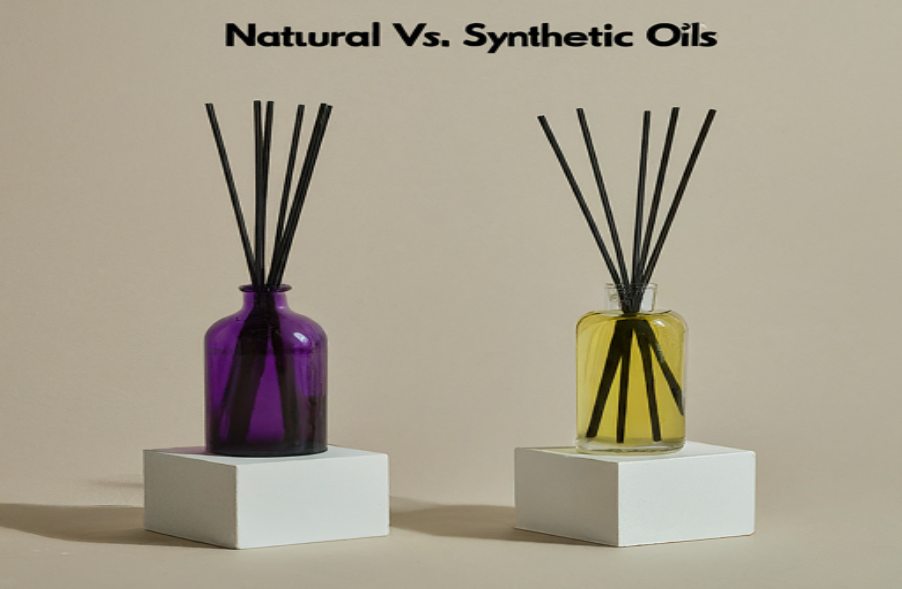Choosing the right oil for your reed diffuser can be a daunting task. Natural and synthetic oils each have their unique properties, benefits, and drawbacks. Understanding these differences will help you make an informed decision on what’s best for your reed diffuser. Additionally, considering the quality and design of your reed diffuser box packaging can enhance your overall experience and the longevity of the fragrance.
Understanding Natural Oils for Reed Diffusers
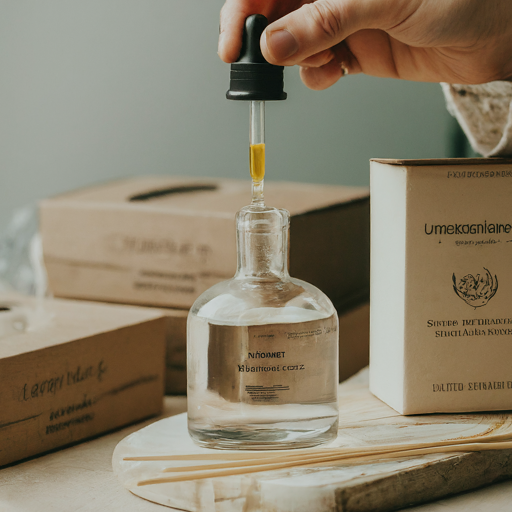
Natural oils are derived from plants and are typically extracted through processes like cold pressing or steam distillation. These oils are celebrated for their purity and natural origins. They offer a range of benefits, including therapeutic properties and a closer connection to nature.
Natural oils often have complex scents that can’t be easily replicated by synthetic versions. They are ideal for those who prefer a more organic approach to fragrance. Essential oils, a type of natural oil, are known for their aromatherapeutic benefits, such as promoting relaxation or boosting mood.
However, natural oils can be expensive and may have a shorter shelf life compared to synthetic oils. They can also be more susceptible to oxidation and may require careful storage to maintain their potency and fragrance.
The Allure of Synthetic Oils
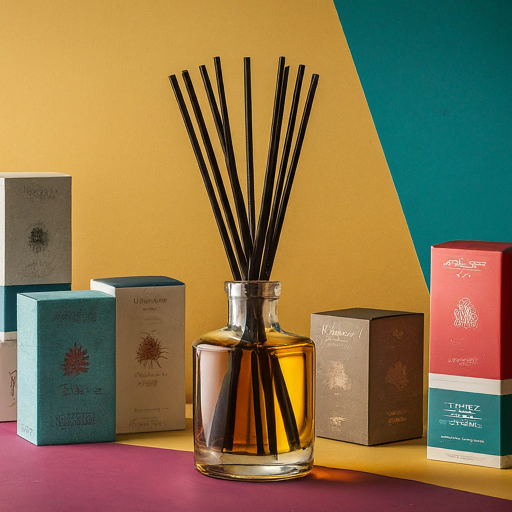
Synthetic oils are created in laboratories using chemical compounds. These oils are designed to mimic the scent of natural oils, often at a fraction of the cost. They offer consistency in fragrance and are less likely to cause allergic reactions, making them a popular choice for many consumers.
One of the main advantages of synthetic oils is their stability. They have a longer shelf life and are less likely to degrade over time. This makes them a practical choice for those who want a long-lasting fragrance for their reed diffusers.
However, synthetic oils lack the therapeutic benefits of natural oils. They are purely for fragrance and don’t offer the same holistic benefits as their natural counterparts. Additionally, some people may be sensitive to the chemicals used in synthetic oils, leading to potential irritation or adverse reactions.
Health Benefits of Natural Oils

Natural oils are not only valued for their pleasant aromas but also for their potential health benefits. Many essential oils used in reed diffusers have properties that can positively impact mental and physical well-being.
For instance, lavender oil is known for its calming effects and can help reduce stress and anxiety. Eucalyptus oil has antibacterial properties and can aid in respiratory issues. Peppermint oil is invigorating and can help with concentration and focus.
These health benefits make natural oils a popular choice for those looking to enhance their living environment holistically. The therapeutic properties of essential oils can transform your home into a sanctuary of well-being.
The Environmental Impact of Natural vs. Synthetic Oils
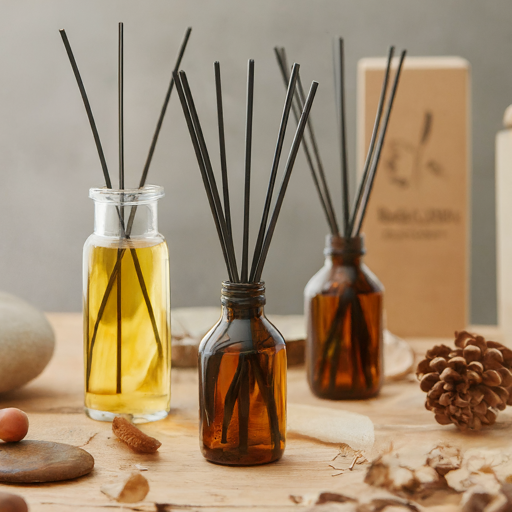
When considering the environmental impact, natural oils have both positive and negative aspects. The production of natural oils often involves sustainable farming practices. However, the extraction process can sometimes be resource-intensive.
On the other hand, synthetic oils are produced in laboratories, which might have a smaller environmental footprint in terms of land use. However, the chemical processes involved in creating synthetic oils can produce pollutants and waste.
Choosing natural oils supports sustainable agriculture and reduces reliance on chemical manufacturing. However, ensuring that the natural oils you purchase are sourced from environmentally responsible producers is crucial.
Cost Comparison: Natural vs. Synthetic Oils
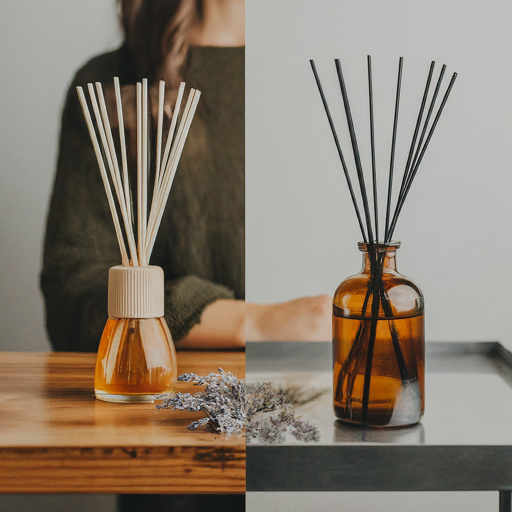
Cost is a significant factor for many when choosing between natural vs. synthetic oils. Natural oils tend to be more expensive due to the extraction process and the quality of the raw materials. Essential oils, in particular, can be quite costly.
Synthetic oils are generally cheaper and more accessible. They offer a budget-friendly option for those who want to enjoy pleasant fragrances without breaking the bank. However, the lower cost of synthetic oils comes at the expense of missing out on the natural therapeutic benefits.
Weighing the cost against the benefits is essential. If you value the therapeutic properties and the connection to nature, natural oils might be worth the investment.
Performance in Reed Diffusers

When it comes to performance, both natural and synthetic oils have their pros and cons. Natural oils tend to have a more complex and authentic fragrance. However, they may require more frequent refilling as they can evaporate faster.
Synthetic oils, on the other hand, provide a consistent and long-lasting fragrance. They are designed to work efficiently in reed diffusers, ensuring a steady release of scent over time. This makes synthetic oils a practical choice for those who prefer low-maintenance options.
The choice between natural and synthetic oils for reed diffusers ultimately depends on personal preference. Consider what you value more: the authenticity and health benefits of natural oils or the convenience and consistency of synthetic oils.
Storage and Longevity
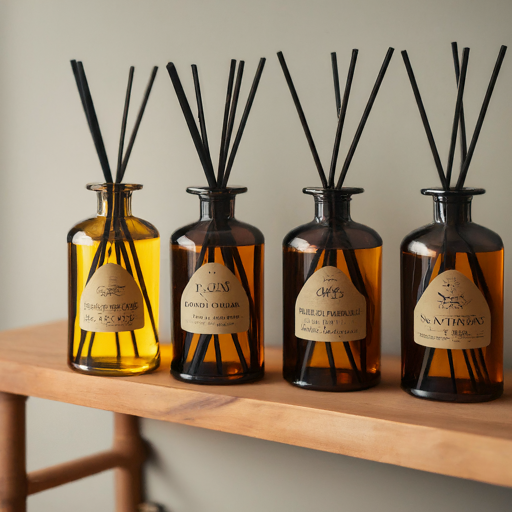
Proper storage is crucial to maintaining the quality of both natural and synthetic oils. Natural oils are more prone to oxidation and degradation. They should be stored in dark, airtight containers away from direct sunlight to preserve their potency and fragrance.
Synthetic oils are more stable and have a longer shelf life. They can be stored in a variety of conditions without significant degradation. This makes synthetic oils easier to manage and less likely to require special storage considerations.
Regardless of the type of oil, proper storage ensures that your reed diffuser continues to perform optimally, providing a pleasant fragrance for a longer period.
Conclusion
Choosing between natural and synthetic oils for reed diffusers is a personal decision. Each type of oil has its unique benefits and drawbacks. Natural oils offer therapeutic properties and a closer connection to nature, while synthetic oils provide consistency, affordability, and longer shelf life.
Consider your priorities: do you value the health benefits and authenticity of natural oils, or do you prefer the practicality and stability of synthetic oils? Whichever you choose, proper storage and high-quality reed diffuser box packaging are essential to maintaining the fragrance and quality of your oils.
